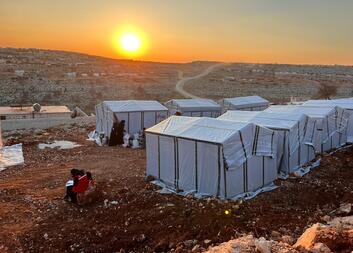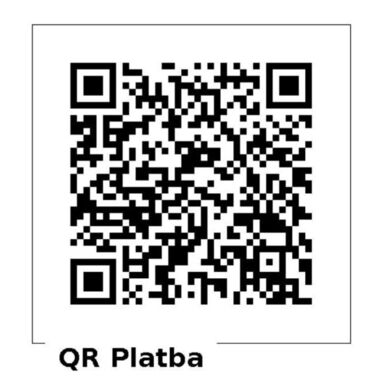The effects of the devastating earthquake that struck the Turkish-Syrian border region in February this year are still felt by people in the affected regions. What is the current situation in the affected areas? What is currently most needed? And how is Caritas Czech Republic helping on the ground? We spoke to Rukas Ibrahim, Emergency Response Coordinator at Caritas Czech Republic in Turkey and Syria.
DONATE TO CARITAS FOR TURKEY AND SYRIA
More than a month has passed since the devastating earthquake in Turkey and Syria. What is the current situation in the affected areas?
The most worrying issue at the moment is the situation regarding the provision of safe and decent accommodation. People are still living in tent cities, regardless of the bad weather.
Turkey is also dealing with flooding, which is a huge problem when people are living in tents. Humanitarian organisations are, therefore, trying to provide people with accommodation in habitable containers, which can protect them from the bad weather better than tents. However, the containers take some time to build and prepare. In the meantime, we are distributing tarpaulins, thick plastic covers, to protect the tents from the rain.
The situation in the countryside in the Turkish province of Hatay, where Caritas Czech Republic is helping together with partner organisations, is also not ideal. When the earthquake hit the towns, many people moved to the countryside where they felt safer and had some family members. But the tremors also hit buildings there, so people have to live in tents. Moreover, the destroyed roads make it difficult to provide aid, but it is still very much needed.
In the immediate aftermath of the earthquake, humanitarian organisations focused mainly on providing basic needs such as shelter and food. Have the needs of the people changed in over one month since the earthquake?
Although the needs of the locals are gradually changing, the provision of humanitarian assistance is still needed. To meet these needs, together with its partners, Caritas Czech Republic is providing food and warm clothes to the affected people, among other things.
One of the biggest challenges in the affected areas, however, is the provision of sanitation. People living in tent cities do not have access to water. This is not just clean drinking water, but water in general, which is needed for using toilets and showering. There are people who have not showered for over 15 days. So we are working to ensure access to sanitation facilities.
Caritas Czech Republic has been helping people affected by the earthquake since day one. What does this aid look like now?
As I have already mentioned, Caritas Czech Republic and its partner organisations in the Turkish-Syrian border region are providing humanitarian aid to the people affected by the earthquake to secure basic needs. We are handing out food baskets and drinking water. We are distributing materials necessary for protection from the cold such as winter clothes and blankets. We also provide shelter to people who have lost their homes, both by moving them into habitable containers and by winterizing their tents with heaters and tarps.
Further, we are focusing on improving sanitation conditions, which are very poor in the affected areas. We are distributing hygiene kits and special hygiene kits for women. We are also building latrines and containers with toilets and showers for people living in tent cities who suffer the most from the lack of sanitation facilities.
Humanitarian aid has long been unable to reach north-western Syria because of the political situation there. What is the situation like today? Is aid getting through to Syria, or are humanitarian organisations still facing obstacles?
Access to north-western Syria is now largely enabled, which is positive news. However, due to the huge demand, coupled with global inflation, the prices of essential materials such as building materials, hygiene supplies for the kits, and even food have risen enormously in Turkey. Although physical access to Syria is now possible, the availability of materials is problematic. Financial and material aid is, therefore, still very much needed.
The effects of the earthquake in Turkey and Syria will be felt by the people in the affected areas for a long time. How does Caritas Czech Republic plan to help Turkey and Syria in the future?
Primarily, we plan to continue our current activities, such as providing dignified shelter and distributing humanitarian aid. At the same time, we are constantly monitoring the situation and communicating with local authorities about the current needs of the affected people so we can provide adequate assistance.
Humanitarian aid in Turkey and Syria will continue to be needed. How can people in the Czech Republic help?
Immediately after the disaster, there was a huge wave of solidarity to help people affected by the earthquake from all over the world, which enabled us to help from the very beginning. But basic material aid such as food, hygiene supplies and clean water are still needed, and humanitarian aid in the affected areas cannot stop.
You can help the people affected by the earthquake by donating to the Caritas for Turkey and Syria collection. We will use the funds from the collection to help people in need on site. Thank you to everyone who decides to donate and help the people of Turkey and Syria.
Thank you for the interview.














